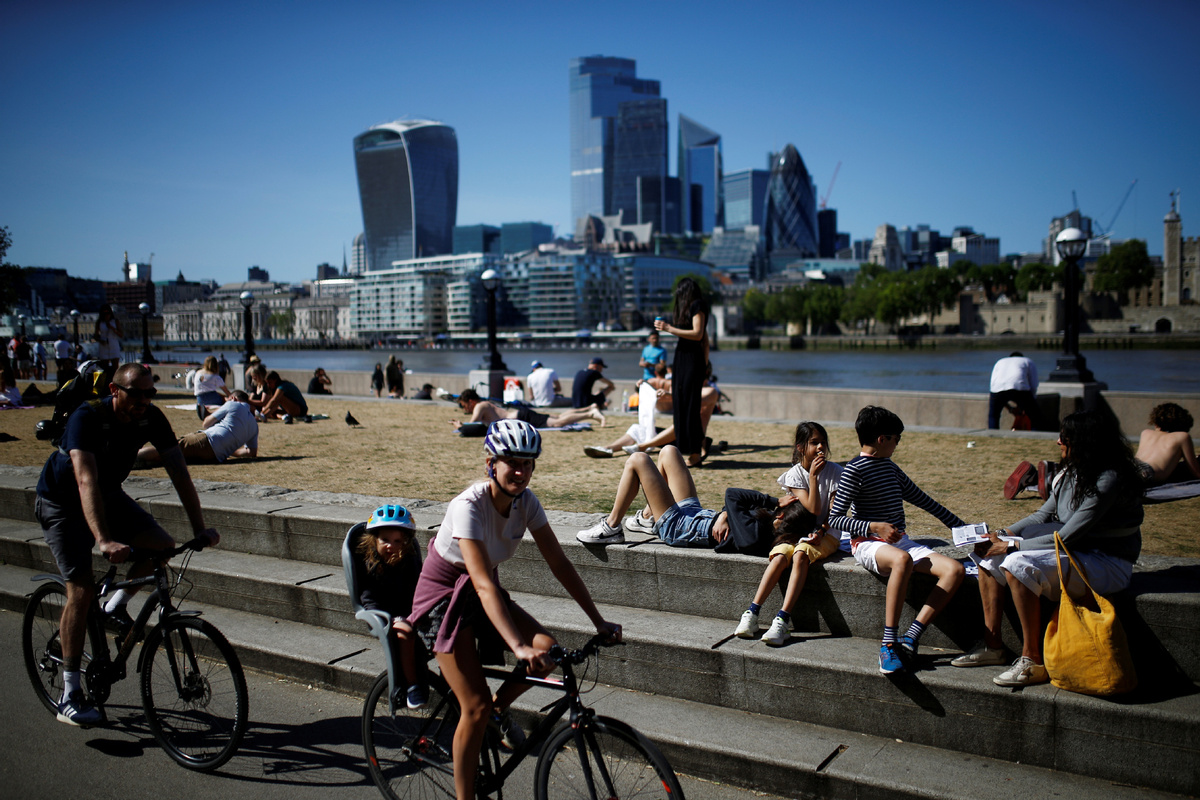Britain records highest number of excess deaths
By JULIAN SHEA in London | China Daily Global | Updated: 2020-05-29 09:22

Country's slow reaction to outbreak 'very surprising', says statistician
The United Kingdom has suffered the highest rate of excess mortality, meaning more deaths than usual, of any country using comparable data since the beginning of the novel coronavirus outbreak, figures released by the Office for National Statistics, or ONS, have revealed.
Previously, both Prime Minister Boris Johnson and Deputy Chief Medical Officer Jenny Harries have said how this statistic is the most effective and useful way to compare national death rates.
"The only real comparison is going to be possible at the end of the epidemic when you look at total excess deaths," said Johnson, while the UK's Chief Medical Officer Chris Whitty has called excess deaths "the key metric".
The week ending May 15 saw 14,573 deaths recorded in England and Wales, 4,385 more than the average figure for the week. When figures from Scotland and Northern Ireland are also included, it reveals the number of deaths in the nine weeks since the outbreak began to be 59,359.
The ONS said the figures for the week in question may be distorted by a delay in the recording of deaths caused by the public holiday at the start of the month for VE Day 75th anniversary celebrations.
The number of deaths in care homes for people who have not been tested for COVID-19 continues to make a huge impact. For the past five years, the average number of deaths in care homes for the nine weeks from March 20 has been 21,699. In the same period this year, it was 46,336.
The opposition Labour Party's shadow health secretary, Jonathan Ashworth, said the figures showed how the government had "not got on top of this crisis as well as other countries".
"We were too slow into lockdown, off the pace on testing and PPE (personal protective equipment), and too slow to protect our care homes," he added.
Natalie Dean, assistant professor of biostatistics at the University of Florida, told the Financial Times that the example of countries such as Italy which had experienced "bad luck" in how they were affected by the virus early on made Britain's slow response "very surprising".
"Given what we were observing in Italy at the time and that the UK was on the exact same trajectory, had the same very steep rise, I was surprised to see discussion about waiting. There was an immediate need to stop what was happening," she said.
Paul McGlone, a partner at insurance company Aon, said that although the death toll from the COVID-19 outbreak was "awful", it highlighted how much mortality rates had changed over the years.
"Even with the astonishing number of deaths we've seen, and even if it continued for the rest of 2020, the mortality rate for 2020 would not be that different to what it was in 2010, and still much better than in 2000."
























